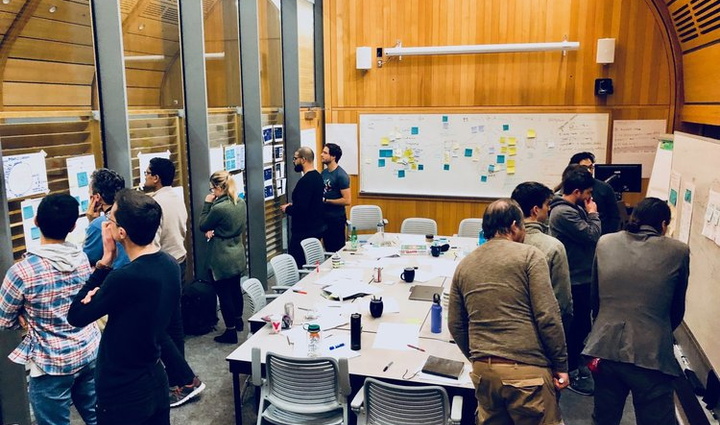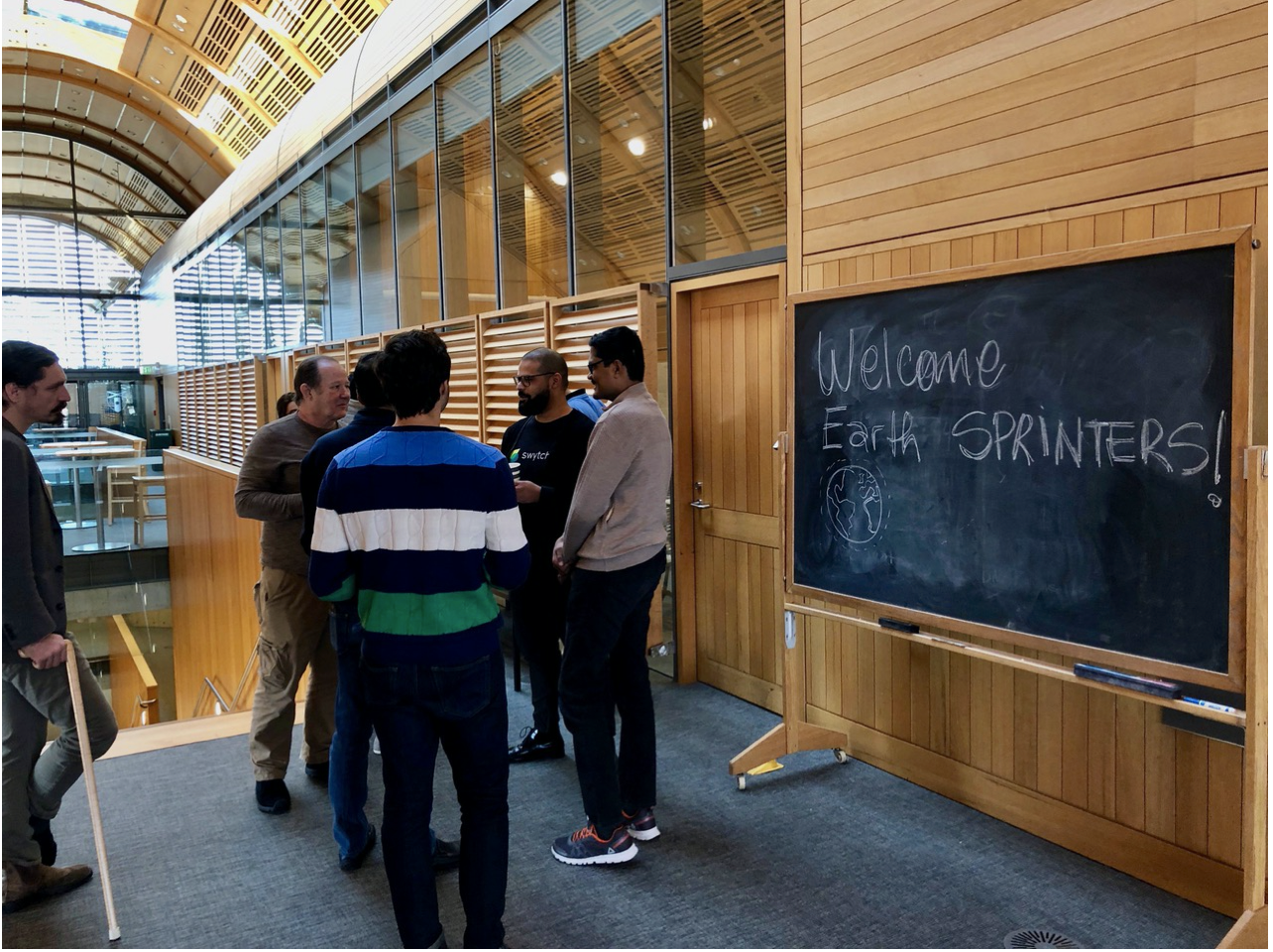Collaborating for Climate: Inside a Design Sprint
This week, delegates from 195 countries are gathered in Poland to discuss the fate of the planet. The annual Conference of the Parties (COP) of the United Nations Framework Convention on Climate Change runs for two weeks, bringing representatives of governments and civil society organizations together to negotiate progress on the major global agreements on climate change, the Kyoto Protocol and the Paris Agreement.

In this spirit, Tsai CITY’s OpenLab joined the global conversation on Saturday, November 8, hosting a multi-stakeholder design sprint at Yale’s Kroon Hall. The design sprint was part of a process that began in August, when the OpenLab joined forces with Data-Driven Yale and the Yale Institute for Network Science to kickstart the research theme of how blockchain — a decentralized digital ledger technology — could be applied to what might be the world’s hardest accounting problem: tracking and managing the atmosphere’s limited carbon budget. The December sprint zoomed in on a piece of this puzzle, asking participants to brainstorm how to securely integrate data gathered by internet-connected sensors and smart devices into blockchain-based climate accounting tools.
The design sprint was the first part of a series of “Open Earth Collabathons” focused on developing open-source climate tracking tools, which will continue with a collaborative coding contest in April. The initiative is being led by Tsai CITY innovator-in-residence Martin Wainstein, an expert in blockchain and emerging technology who leads the OpenLab, and Yale faculty member Angel Hsu, a renowned data scientist who directs Data-Driven Yale and is an expert on non-state climate actions. The sprint was facilitated by Wainstein and student Daniel Csonth (MEM ’20), with the support of CITY fellow Sophie Janaskie and student entrepreneur Alexia Akbay (MPH ’19). Get a glimpse of the design sprint process below.

Getting started
17 participants gathered at Yale’s Kroon Hall for the eight-hour sprint. The sprint involved experts on blockchain and climate science, including Yale students and researchers as well as entrepreneurs and developers from New York and Boston. Invited participants included members of the MIT Media Lab, Swytch.io, Byte Academy, Raise Green, and Regen Network.
Mapping out the problem
Before coming up with solutions, it’s important to think through and frame the problem at hand. To this end, the morning was used to build a level playing field of knowledge among participants and to clarify the day’s challenge. This included presentations on carbon accounting, blockchain’s technical specifics, and reframing challenges into opportunities by asking questions that start with, “How might we..?”
From here, participants took notes and gathered details as they prepared to brainstorm solutions.
Ideation and brainstorming
Participants spent time individually brainstorming potential approaches and practices for securely connecting sensor data and blockchain-based carbon accounting, using basic materials like paper, pens, and post-its to give form to their ideas.
Idea evaluation
After the brainstorming session, participants walked around the room to check out each other’s sketches and ideas. Through a collective decision-making process called “heatmapping,” they identified the strongest ideas.
The ideas the group found most compelling were presented in more detail. Based on these concepts, the group produced a preliminary framework and a set of primary considerations on how to utilize sensor data if blockchain is to be used in carbon accounting, including recommendations for effective verification and validation.
Look out for more news from this initiative, as participants continue to explore how blockchain technology can be used with climate and carbon data. In the meantime, get to know the Yale players leading the effort: learn more about the OpenLab, Data-Driven Yale, and the Yale Institute for Network Science.